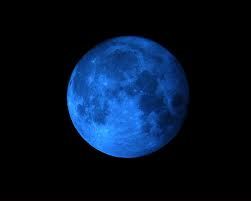When Gridlock Works: Cybersecurity Bill Stuffed, For Now
By: David Dayen, Firedog Lake
Thursday August 2, 2012 11:06 am
The Senate, unable to come up with a schedule for amendments, blocked the cybersecurity bill today in an outcome that, despite being a result of Republican obstruction, satisfied Internet activists who had been urging a no vote.
…
He (Senate Majority Leader Harry Reid) decried the fact that meetings continued on amendments without a deal, and that the Chamber of Commerce, which opposes the legislation because they feel it still puts too many demands on business groups to maintain standards for resisting cyber attacks on public infrastructure, was driving the process. Lawmakers took out the mandatory standard prescriptions on businesses, but the Chamber of Commerce still finds the bill too stringent. “Republicans are running like scared cats” on the legislation, Reid said. “The Chamber of Commerce has now become the protector of our nation’s security.”But if the Chamber is forcing Republicans to “run scared,” privacy groups and experts are running from the bill as well. Though they did get improvements from the truly awful CISPA bill that passed the House, most activist groups on the left paying attention to the bill still oppose it. The activist group Demand Progress generated 500,000 contacts to Congress opposing the bill, and the coalition Fight for the Future has been rallying against the bill as well.
…
The best hope for stopping these breaches of privacy for coming into being is to kill a cybersecurity bill that many experts have doubted is necessary, especially without the mandatory standards. Sometimes gridlock is a friend.
As with Keystone XL, Social Security, and Medicare/aid this is likely a temporary victory. Versailles is convinced the proles have too much and want to take it away. The solution is to fire them.
All.
Remember in November.

 Fifty-six congressional delegates in total signed the document, including some who were not present at the vote approving the declaration. The delegates signed by state from North to South, beginning with Josiah Bartlett of New Hampshire and ending with George Walton of Georgia. John Dickinson of Pennsylvania and James Duane, Robert Livingston and John Jay of New York refused to sign. Carter Braxton of Virginia; Robert Morris of Pennsylvania; George Reed of Delaware; and Edward Rutledge of South Carolina opposed the document but signed in order to give the impression of a unanimous Congress. Five delegates were absent: Generals George Washington, John Sullivan, James Clinton and Christopher Gadsden and Virginia Governor Patrick Henry.
Fifty-six congressional delegates in total signed the document, including some who were not present at the vote approving the declaration. The delegates signed by state from North to South, beginning with Josiah Bartlett of New Hampshire and ending with George Walton of Georgia. John Dickinson of Pennsylvania and James Duane, Robert Livingston and John Jay of New York refused to sign. Carter Braxton of Virginia; Robert Morris of Pennsylvania; George Reed of Delaware; and Edward Rutledge of South Carolina opposed the document but signed in order to give the impression of a unanimous Congress. Five delegates were absent: Generals George Washington, John Sullivan, James Clinton and Christopher Gadsden and Virginia Governor Patrick Henry. The phrase “once in a blue moon” was first noted in 1824 and refers to occurrences that are uncommon, though not truly rare. Yet, to have two full moons in the same month is not as uncommon as one might think. In fact, it occurs, on average, about every 2.66 years. And in the year 1999, it occurred twice in a span of just three months.
The phrase “once in a blue moon” was first noted in 1824 and refers to occurrences that are uncommon, though not truly rare. Yet, to have two full moons in the same month is not as uncommon as one might think. In fact, it occurs, on average, about every 2.66 years. And in the year 1999, it occurred twice in a span of just three months. The first two days of August are also the Wiccan holiday of
The first two days of August are also the Wiccan holiday of
Recent Comments